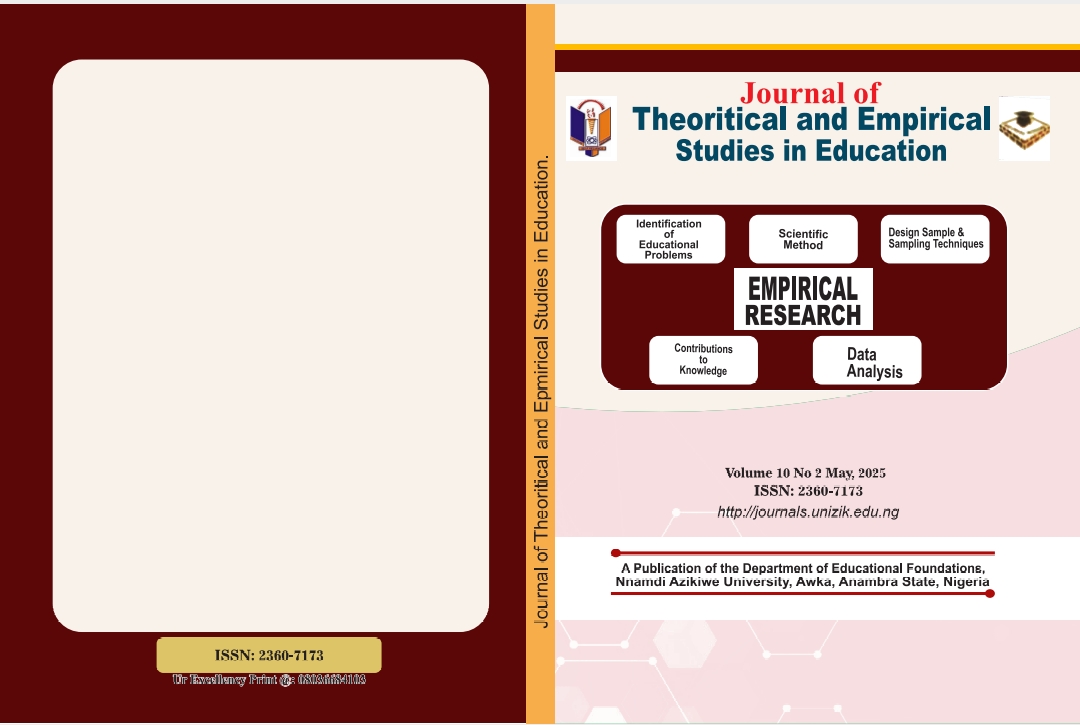Frequency of Social Media Engagement as Correlates of University Undergraduates Academic Procrastination in Anambra State.
Keywords:
Social media, Social-media engagement, Academic procrastination, Undergraduates.Abstract
This study examined the relationship between undergradutes' frequency of social
media engagement and their tendency to exhibit academic procrastination. The
proliferation of digital devices and the social media revolution has thrown up
interesting trends amongst university undergradutes. While their social media
engagement has been at an all time high, there are worrying signs that this may
be taking a toll on their academic engagement, possibly leading to postponing
important academic tasks in pursuit of immediate gratification gotten from social
media engagement. This correlational study focused on 589 undergradutes from
NAU Awka and Chukwuemeka Odumegwu Ojukwu University Igbariam
sampled using Convenience Sampling Technique. Two instruments were
employed for data collection; a researcher-made instrument titled "Social Media
Engagement Frequency Questionnaire (SMEFQ)", and an Academic
Procrastination Scale. Face and content validity were done by 3 experts from the
Department of Educational Foundations, Nnamdi Azikiwe University, Awka,
while reliability was computed using the Cronbach Alpha technique which
yielded .80 and .75 for the SMEFQ and APS, respectively. Data collected were
analysed with SPSS version 26. Frequency (percentages) and PPMC were used
to answer the research questions, while linear regression was used to test the
hypotheses. Results revealed a high frequency of social media engagement
among the respondents. Also, strong positive associations were found between
frequency of social media use and academic procrastination. Recommendations
were made that policy and pedagogical measures are needed to help
undergraduates imbibe more scholarly use of social media to help them manage
their time better.




